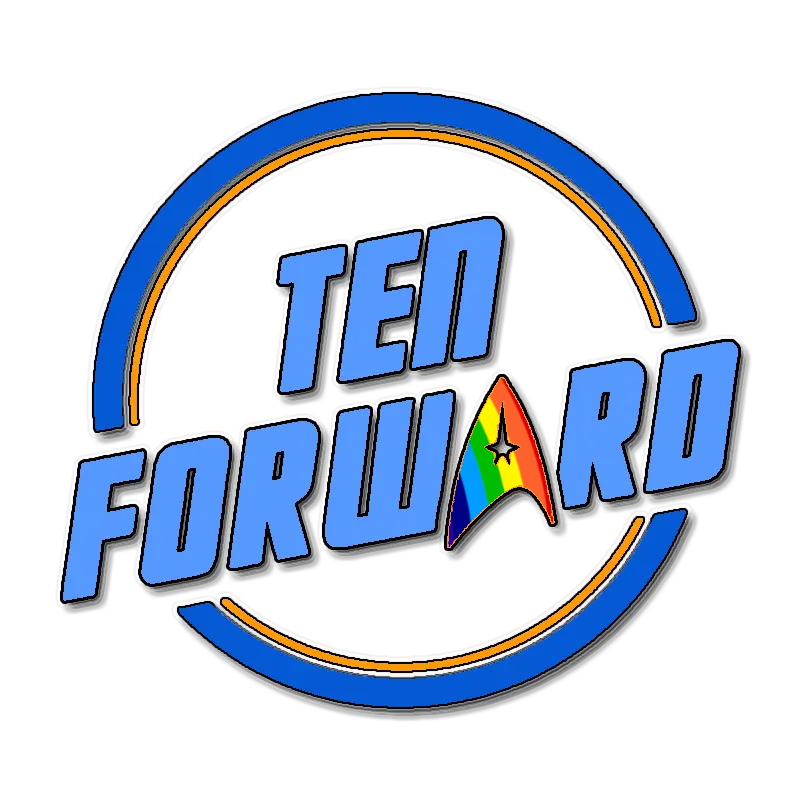data1701d (He/Him)
“Life forms. You precious little lifeforms. You tiny little lifeforms. Where are you?”
- Lt. Cmdr Data, Star Trek: Generations
- 53 Posts
- 712 Comments

 1·16 hours ago
1·16 hours agoY skinnee Picard?

 2·3 days ago
2·3 days agoTrue. At my tech helpdesk, I’ve seen people who keep their Macs on very old versions even if their hardware supports much newer (and non-Tahoe) versions and suffer problems because of it.
For instance, the other day, a woman’s Microsoft Office quit working because she was still on Ventura, which no longer gets security updates. This was on what I believe was a 2022 Macbook.
I think something is seriously wrong with Apple’s update system. I mean, the Windows approach is objectively wrong, but automatic update systems need to be at least a bit aggressive.

 12·4 days ago
12·4 days agoI believe 3.0 finally moved to Python 3. Resynthesizer was also totally rewritten for 3.0, but I don’t think it’s in Python anymore (?).

 3·4 days ago
3·4 days agoLucky for me, I upgraded both my desktop and laptop to 2TB SSDs before they decreed that the peasants can’t have SSDs or RAM anymore.

 4·4 days ago
4·4 days agoI get the complaints of lackluster writing in SNW S3, but also, you haven’t seen truly bad media until you’ve watched either Twisters or Beetlejuice, Beetlejuice, which makes Discovery season 2 seem downright straightforward and well-written by comparison.
It’s not the best consolation, but it could go much worse. Also, I feel like if I had a choice, I’d take being strapped to a chair and forced to watch SNW season 3 looped 2.5 times over the same for TNG season 1.

 2·4 days ago
2·4 days agoUnless it does something egregious, I’ll probably push myself through it no matter what for the sake of completionism.
Speaking of which, I need to do that for Disco’s last couple seasons before I start the show.

 4·5 days ago
4·5 days agoI read it through my library, which keeps a good stock of Trek comic volumes. I think I now also have a PDF of it from a Humble Bundle.

 9·5 days ago
9·5 days agoYou forgot somebody, and he’s very mad:


 4·5 days ago
4·5 days agoMy biggest worry is what they do with the Klingons in the 31st century; they’re probably going to talk about how war-torn and poor Qo’Nos is or have the planet have gotten blow up or something dumb like that.
I’d love to have it so that either Qo’Nos surprisingly has had its crap together and managed to avoid brutal civil wars post-burn, with the result being in defiance of all expectations, it was one of the better planets to get stuck on after the Burn.

 6·5 days ago
6·5 days agoThis guy is low-key the Gowron of the Orions. I kind of hope he shows up again in one of the two later seasons.

 2·5 days ago
2·5 days agoPost system specs here just to be safe. If it’s an older machine, there could be various hardware failures. “Monitors” makes it sound like a desktop, but you should clarify just to be safe, and perhaps indicate if has PCIe slots or is more of a mini PC.
Also, what do you mean by “monitors going dark”? Are the backlights on, or are they absolutely dark?

 3·5 days ago
3·5 days agoIt’s probably not Secure Boot. I mean, worth a test, but it sounds like the issue occurs in the middle of a running session, which is not consistent with the issues sometimes presented by Secure Boot.

 8·5 days ago
8·5 days agoHonorary mention: IDW Picard’s Academy was a fun enough read.

 9·5 days ago
9·5 days agoIt’s solidly okay. I wish it were in brush form like Photoshop was, and I wish it were better-optimized; it’s written in Python and a bit slow. I think Photoshop GPU accelerates this.
Still, usable for a lot of things.

 3·5 days ago
3·5 days agoTo be fair, I think there are more reasons to pay for Netflix than there are reasons to pay for Paramount+ that don’t rhyme with “Schmar Schmeck”.
And honestly, I’m looking to just switch to a Blu Ray/DVD collection; with Lower Decks and Prodigy over, I might as well just have their series BluRays. Maybe I’ll come back for SNW seasons (and maybe SFA if worth it) so the show can get some ratings or whatever.
As to avoid giving Paramount geezers cash, I’ll probably try to buy used from local businesses.
For DS9 and VOY, though, I’ll probably just buy DVDs for plausible deniability and then torrent one of the many upscales. There’s supposedly a nifty project where someone’s using a Domesday duplicator to rip DS9 and VOY seasons’ laser discs with Domesday duplicator because the DVD transfers of those seasons are so horrible.

 1·5 days ago
1·5 days agoI usually use my device’s native boot menu these days; booting through GRUB usually triggers the Bitlocker screen.

 5·5 days ago
5·5 days agoSounds like a freak accident rather than the fault of the VM.
I literally use a GPU for passthrough on my Windows 10 (and macOS) VM; PCIe is a much more complex protocol and much easier to F up than USB.
I’ve used my iPhone many times through Windows and been fine, as well as whole USB keyboards and mice (just simple ones); I think I might have even updated an iOS device once, though I can’t remember if I actually did. I’ve also used an iPod Nano 7th through an 11 LTSC VM before.
I could see some things being a little finicky, but simply managing a Zune with a VM probably causes no issues. It’s probably been eons since it got a firmware upgrade anyway.



But what about Lower Decks volume 2?